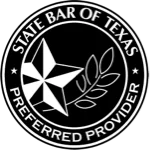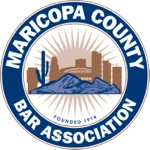If you’re a law firm fighting to improve your search engine click-through rates in a competitive market, you need to know about schema.
While a bit tricky to implement if you’re not a coder, the rewards of schema are straightforward and powerful. Schema is structured data that tells search engines what you’re all about. It’s one key to unlocking visibility in the SERP when designing websites for lawyers.
Here’s a primer that explains what schema is and why law firms need to know about schema.
What is a schema for a website?
Schema is structured data, written in code in the backend of your website. Schema helps search engines like Google and Bing understand your website better.
HOW: It’s written in JSON or microdata. (JSON is preferred)
WHY: Smart use of schema can generate rich results that significantly improve your click-through rates. It also helps Google easily understand which types of searches your business is relevant for.
You need schema to help search engines find and display useful information from your website directly in the search results. For instance, schema can highlight your location, practice areas, reviews, and contact information.
There are many types, but the most important schema for lawyers is the local business schema. As your site grows, you might consider adding others like authorship schema.
Schema examples
Here are some of the most useful schema and how lawyer websites can benefit from schema.
Local business schema
When optimizing a site, it’s important to use the most specific type of local business schema that you can find. For lawyers, this is https://schema.org/LegalService. This schema helps search engines display your law firm’s name, address, phone number, and hours directly in the search results. You can update it to add reviews, awards, or new service areas. This is perfect for boosting your visibility with potential clients searching locally, as it tells search engines exactly where to find you and if you’re open.
Authorship schema
Adding authorship schema can highlight the credibility of your site’s blog authors or contributors. While this is helpful for all legal sites, it’s especially valuable for multi-author sites where proving multiple sources of expertise can improve your online authority for E-E-A-T and improve visibility.
Event schema
Use event schema to help you get eyes on promotional events like webinars, seminars, or community gatherings. Event schema allows you to mark up event details like date, time, and location so they appear directly in search results. This is an effective way to grab attention in the SERP and encourage participation, especially if you use geotags to help target local searchers.
Video schema
Video schema turns a basic video into a potential rich snippet (which is SEO gold). Wouldn’t it be nice if your video thumbnail could appear in search results and stand out from the other content? People can play your videos directly from the SERP or click through. This is particularly useful for explainer videos, Q&A sessions, or case studies.
4 things law firms need to know about schemas
1. Schema is not automatic.
Schema requires coding or the use of a tool. It doesn’t happen by itself!
Make sure you or your web developer implement schema properly. Correct implementation is essential, as errors can lead to negative outcomes in the SERP. You need to choose the right type of schema, validate the code, and update it when things change. Work with a professional to get a site that has error-free schema optimized for your firm’s needs.
2. You need the right schema.
Local business schema is a great starting point for lawyers trying to maximize visibility. If your site has a blog, consider adding authorship schema to associate content with individual attorneys. The right schema creates online authority and communicates clearly with search engines to index the content. Tailor your schema choices to your site’s features. For instance, you may want to use Review schema or FAQ schema to showcase that content.
3. Some templates include schema.
If your law firm’s website is a custom or template site built on a modern CMS (Content Management System) like WordPress, good news! It’s likely your template includes basic schema markup.
Many template sites come preloaded with structured data for key elements like blogs, articles, and local business information. However, built-in schema is often generic. It’s important to customize schema for the best results, and a good website partner can help you add custom schema to a template site for maximum impact.
4. DIY sites limit your schema.
DIY website builders on proprietary platforms are not the same as template websites built on open source platforms.
Wix, Squarespace, and Weebly are proprietary DIY sites, and they offer limited schema functionality. You can add basic markup like Local Business Schema, but these platforms lack the flexibility needed for more complex or tailored schemas.
Custom-built websites and advanced template sites allow for full control over your structured data. With custom coding, you can implement multiple schema types to optimize various parts of your site, from attorney bios to case studies.
For law firms serious about SEO, investing in a custom-built site or a platform that supports robust schema integration is a worthwhile decision. While you can do some customizing with Wix and Squarespace, it’s nothing compared to the structured data possibilities with a custom template site.
Review and next steps
Advanced schema can unlock visibility in the SERP—and if you want advanced schema tailored to your law firm, you may find DIY platforms limiting.
Schema allows you to mark up multi-author blogs, video content, events, and local business information. For maximum SEO impact, work with a developer or implement a customizable template with schema.
Get started with a free consultation.












